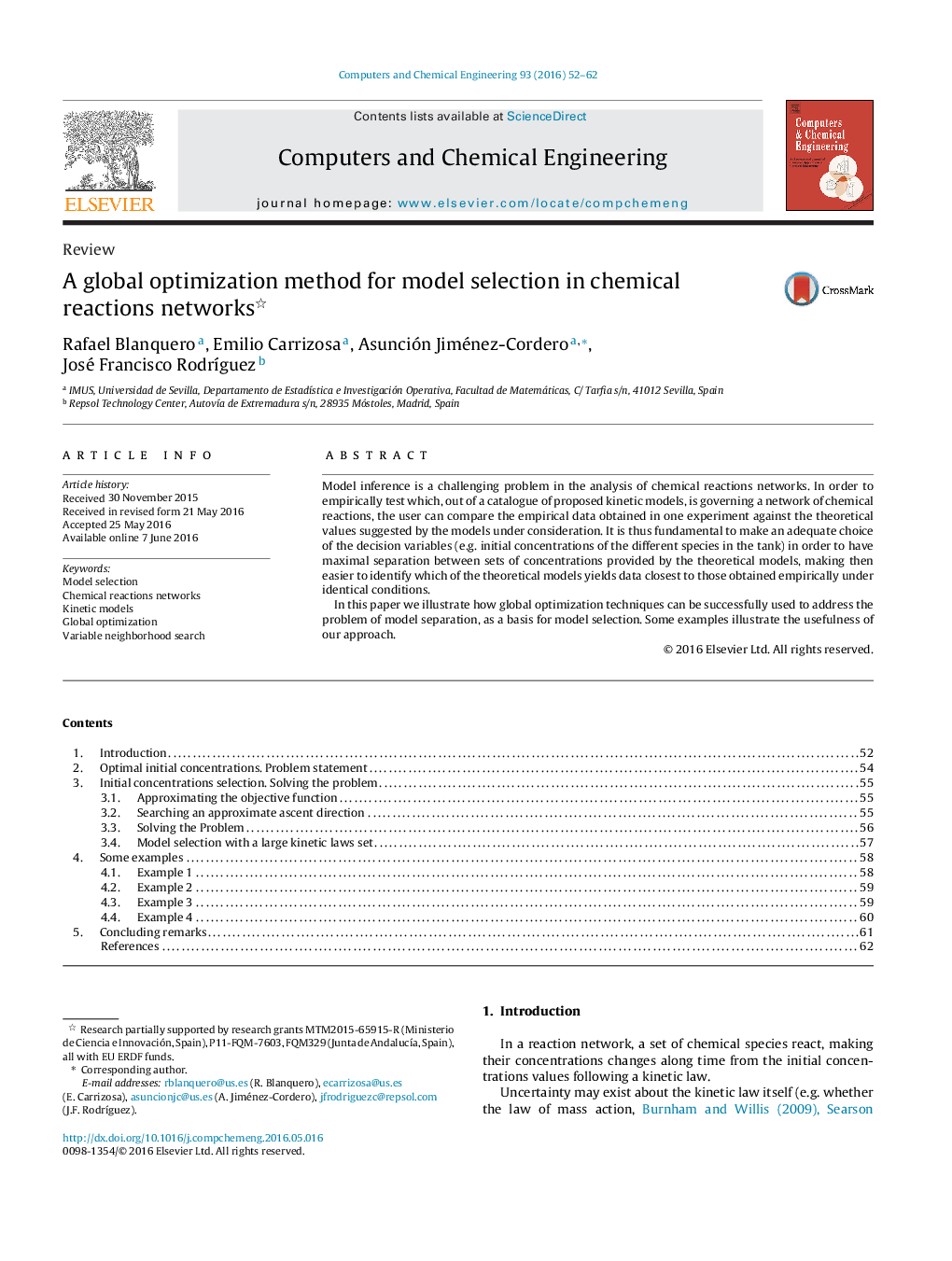| Article ID | Journal | Published Year | Pages | File Type |
|---|---|---|---|---|
| 171978 | Computers & Chemical Engineering | 2016 | 11 Pages |
•A novel approach to model selection in chemical reaction networks is considered in this work.•The problem is stated by means of mathematical optimization tools.•The powerful metaheuristic variable neighborhood search is used to globally solve the problem.•This methodology allows us to solve the challenging problem of separating several models given by a set of kinetic laws.
Model inference is a challenging problem in the analysis of chemical reactions networks. In order to empirically test which, out of a catalogue of proposed kinetic models, is governing a network of chemical reactions, the user can compare the empirical data obtained in one experiment against the theoretical values suggested by the models under consideration. It is thus fundamental to make an adequate choice of the decision variables (e.g. initial concentrations of the different species in the tank) in order to have maximal separation between sets of concentrations provided by the theoretical models, making then easier to identify which of the theoretical models yields data closest to those obtained empirically under identical conditions.In this paper we illustrate how global optimization techniques can be successfully used to address the problem of model separation, as a basis for model selection. Some examples illustrate the usefulness of our approach.
